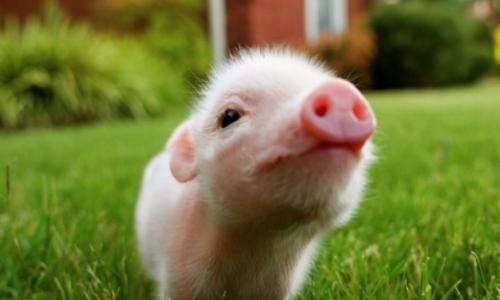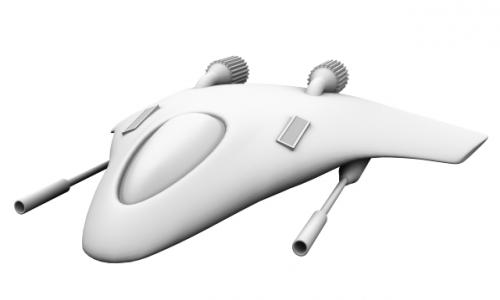
European fears of the spread of a new virus that affects pig
Post By : Akhil Satheesh
Post Rank : 1631th
Category : Social-Mania
Sub Category : Science
04 May 2014
It is expected that France stop activities relating to import pigs from some countries after growing fears the spread of a deadly new virus that infects pigs.The proportion of deaths piglets between 80 and 100 percent due to virus
The tunnel is about seven million of piglets in the United States last year of being infected with diarrhea epidemic which infects pigs, the disease has also been detected also in Canada, Mexico and Japan.
Although the disease is not harmful to humans or food, but France is concerned about the potential economic impact, is expected to stop the import of live pigs and sperm from the males.
The virus is spread in the waste, and the bowels of attacking pigs and prevent the absorption of fluids and nutrients.
Can be large for pigs to recover from the disease, but the mortality rate among piglets between 80 and 100 percent.
Experts estimated that a teaspoon of fertilizer, which contains the virus infection can all pig herds in the United States.
According to the World Organization for Animal Health, believes that China is the source of the disease.
He said FAO Director-General, Bernard Vallat, told the BBC that "genetic analyses of the disease show a similarity with the strain of Asian, but the guide cross the disease from Asia to the United States has not been proven yet. At the present time, we can not be certain that this relationship, and is only doubts. "
In North America, the disease has spread very quickly, where it appeared about four thousand cases in 30 U.S. states and four Canadian provinces and some parts of Mexico.
The spread of the virus
In the opinion of experts in this field that lax biosecurity is an important factor for the spread of the virus.
In June of last year, a U.S. study showed that about 17 percent of the trucks transporting the animals of the massacres was carrying the virus.
Says Zoe Davis, of the National Association of pig breeders in Britain, said the study also revealed that "11 percent of the trucks is infected, came out of the massacres which carry the virus, so it has to do with the number of animals in the place, and thus spread the disease."
Among one of the factors that increase the difficulty of preventing the spread of the disease is the use of dried blood in swine feed materials that are given to suckling pigs.
Vallat says, "is suspected to be a source of nutrition transmission of the virus as well, blood of the massacres did not heat up enough suspected to be the source of the disease, and we have no scientific evidence, but it is a higher probability."
The French move to stop the import of live pigs and their products and sperm from the males reacted to the lack of action at EU level.
In the United Kingdom, says the National Association of pig farmers she had the support of senior importers to prevent the import of pigs from the affected country. It also said that 92 percent of the pigs being raised in Britain do not feed on blood products, while spreading the use of these nutrients in other countries in the European Union.
There are fears that the arrival of the disease to Europe to significant economic losses, especially for pig farmers in Denmark, the Netherlands and Germany.
Although the EU Commission discussed the matter, but it has not yet reached a decision prevents the import.
According to news reports, officials say the French government that they made the decision to ban "pending the decision of the EU."
"Herds weak"
The disease was discovered for the first time in the United Kingdom in 1971, but this strain was weak and soon she was accustomed pigs and acquired immunity.
Vallat said that the history of European pigs exposed to similar viruses may give hope in the possibility of protection. He added: "The disease spread before in Europe, but a different strain., And some left over if the effects of the spread of the virus, it is possible to protect the animals, but it is uncertain."
While Davis believes that this default is wrong, and that the European pigs susceptible.
He said: "We conducted tests on Qtaanna, and we believe that about ten percent of the animals carry antibodies against previous strains of the disease, so Vqtaanna weak, and we are worried about it."
In the United States, the prices of pork significantly, while not affected by the demand for their meat. According to the manufacturers of pork in the United States, the industry faces a difficult financial year.
Vallat says that "one of the consequences of the problem is to prevent the products from the market, thereby increasing prices. Which is good news for the non-infected herds."
Comments
Similar Posts

New planet similar to Earth
Among the pull of several new planets uncovered by...

How to get a better memory power?
Everyone loves to have a better memory power. Some...

Few modern day phobias
A phobia is an intense fear of something that, in ...

On impact, why beer turns foamy?
After a deep long study by researchers to find the...

The death of the British space scientist Colin Bellinger
Space scientist died Briton Colin Bellinger, who f...
.jpg)
Amazing Facts - You may be amazed.!
If the people in the developing world needed as...

Do you define your orientation political composition of the brain?
Policy is one of the most complex areas of human t...

Hydrogen economy-Our sustainable future.
There is a diversity of fuels out there. But in te...

Less sleeps leads to aging of your brain faster
The less older adults sleep, the quicker their bra...

New aircraft, unmanned "easy to use"
The number of unmanned aircraft flying in the skie...



